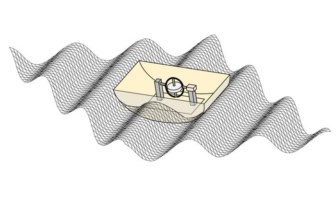With the 2019 Nobel Prize for Physics due to be announced on Tuesday 8 October, Physics World journalists pick their favourite awards from the past. Liz Kalaugher chooses the 2007 Nobel Peace Prize, which has a strong physics connection

My favourite Nobel is not for physics but for peace: the 2007 Nobel Peace Prize split equally between Al Gore and the more than 2000 members of the Intergovernmental Panel on Climate Change (IPCC) committee for “their efforts to build up and disseminate greater knowledge about man-made climate change, and to lay the foundations for the measures that are needed to counteract such change”.
The IPCC half of the prize could perhaps have been for physics too. Many climate modellers have a background in this discipline, and physicists have sometimes claimed that physics is the most fundamental science.
Failure to prevent climate change has serious implications for peace – wars over food and water have occurred throughout history. The US military, if not its esteemed commander-in-chief, takes climate change extremely seriously and allows for it in its plans. As the Nobel prize press release put it, “Such [climate] changes will place particularly heavy burdens on the world’s most vulnerable countries…there may be increased danger of violent conflicts and wars, within and between states.” Some experts believe that part of the reason that China has invested so heavily in wind energy is the country’s history of regime change following famine.
In the twelve years since this prize I only wish we’d taken more action to cut greenhouse gas emissions enough to make our – and our descendants’ – future less challenging. Teenage climate activist Greta Thunberg is firm favourite to win this year’s Peace Prize, which will be announced on Friday. But if the rest of us had got our act together sooner, she wouldn’t need to have stepped up to this role. It seems inevitable that, like Alfred Nobel himself, who later seemed to regret his invention of dynamite and set up the Nobel Foundation as some recompense, all of us will come to rue our earlier behaviour, in this case our tardiness in cutting emissions.
There is still time, but we’ve made our job much harder.
Physics World‘s Nobel prize coverage is supported by Oxford Instruments Nanoscience, a leading supplier of research tools for the development of quantum technologies, advanced materials and nanoscale devices. Visit nanoscience.oxinst.com to find out more




